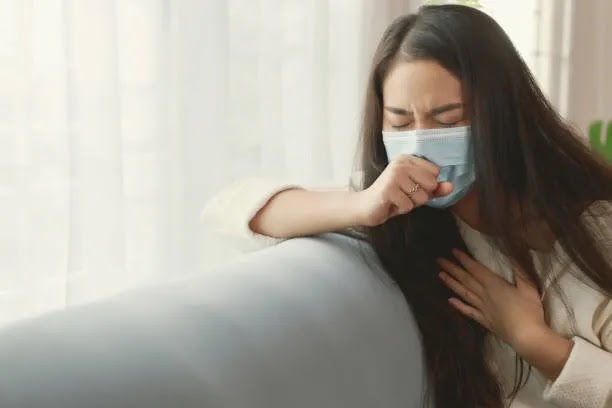Doctors advise on how to recognize Omicron
symptoms and how to keep safe.
Omicron is currently spreading worldwide,
putting everyone at risk of getting the virus. Experts believe that, no matter
how alert and cautious we are, we will most likely acquire the COVID variant.
Last Monday, Dr Anthony Fauci, the president's chief medical advisor and
director of the National Institute of Allergy and Infectious Diseases, said the
variant will "find just about everyone." He emphasized the importance
of getting vaccinations. Dr Fauci warned J. Stephen Morrison, senior vice
president of the Center for Strategic and International Studies, that
"Omicron, with its extraordinary, unprecedented degree of transmissibility
efficiency, would ultimately locate just about everyone." "Those who
had been immunized... and boosted would be exposed. Some, perhaps a large
number, will become infected, but with a few exceptions, will most likely do
well in terms of avoiding hospitalization and death." Experts explained
the signs of Omicron and precautions to follow. Continue reading.
1. Cough
According to Dr Kristina Hendija, "Omicron,
like its mother variant, affects the respiratory tract, causing productive or
non-productive cough. Patients frequently express the desire to expectorate
phlegm but are unable to do so after coughing several times."
2. Fever
"The majority of the patients report having
fever symptoms, however this is a subjective claim for the majority of
them," Dr Hendija explains. "They frequently describe chills and a feverish
sensation that lasts only a day or two."
3. Fatigue
"An expected result whenever there is an
infectious process," says Dr Hendija, "but complaints about easy
fatigability and weakness are significantly less than with the prior delta
variant."
4. More Symptoms
Robert G. Lahita, M.D., PhD (Robert G. Lahita,
M.D., Ph "Sore throat, shortness of breath, coughing, congestion, and
fever," says Dr Bob"), Director of the Institute for Autoimmune and
Rheumatic Disease at Saint Joseph Health and author of Immunity Strong.
However, all of these symptoms are also symptoms of the flu or a common cold —
with the exception of shortness of breath, which is more indicative of
COVID."
The Centers for Disease Control and Prevention
(CDC) also states:
"COVID-19 has been linked to a wide range
of symptoms, from mild to moderate pain to severe sickness. Symptoms might
emerge anywhere from 2 to 14 days after being infected with the virus. Symptoms
might range from mild to severe. COVID-19 is a virus that causes these symptoms
in people.
- Chills or a fever
- Cough
- Breathing problems or shortness of breath
- Fatigue
- Aches in the muscles or throughout the body
- Headache
- New loss of taste or smell
- Throat discomfort
- Congestion or a runny nose are both symptoms of congestion.
- Vomiting or nausea
- Diarrhoea
This isn't a complete list of all possible
symptoms."
5. Omicron is Not the Flu
Many people believe that Omicron is the same as
the flu or a seasonal cold, but doctors differ. "The common cold typically
causes moderate, self-limited symptoms," Dr Daniel Culver, chair of the
Department of Pulmonary Medicine at the Cleveland Clinic, told USA TODAY,
"whereas omicron, like other COVID variants, can result in serious or
fatal illness."
While vulnerable people can die from a rhinovirus
infection at rare times, Jeremy Luban, an infectious disease expert at the
University of Massachusetts Chan Medical School, told USA TODAY via email that
the coronavirus is "much more dangerous and lethal" than the common
cold. "Even though many people can have mild to moderate symptoms when
infected with COVID-19, he claims that more than 800,000 Americans have died as
a result of the virus — a figure he claims is "certainly an underestimate
of COVID-19's true lethality."
How do you know if you have Omicron or the flu?
The symptoms of Omicron and the flu can be highly similar, so how do you do if
you have the variant? According to Dr Bob, "The only way to be sure is to
take a test, such as a rapid antigen or PCR test.
6. Ways to Lower Your Risk of Getting Omicron
1. Get Vaccinated
According to Dr Bob, getting vaccinated and
boosted can save your life and keep you from getting a dangerous case of COVID.
"Even if people are vaccinated, Omicron continues to infect them, thus it
is still spreading. Omicron is a mutant variant with a large number of
mutations. The vaccine does not guarantee that you will never become ill. It is
designed to keep you out of the hospital and reduce deaths if you contract the
disease."
2. Wash Your Hands
According to Dr Hendija, "COVID can be
transmitted in a variety of ways, therefore we must be proactive in our
prevention. Keeping yourself safe requires frequent hand washing, using face
masks, and following health board recommendations."
3. Boost Your Immune System
Dr Hendija claims that "COVID is an
infectious disease, and our immune system is the one that fights it. Having a
stronger immune system by living a healthy lifestyle is a sure approach to
protect yourself and reduce your chances of developing severe COVID."
So, no matter where you live, get vaccinated or boosted as soon as possible; if you live in an area with low vaccination rates, wear an N95 face mask, avoid large crowds, don't go indoors with people you're not sheltering with (especially in bars), practice good hand hygiene.







